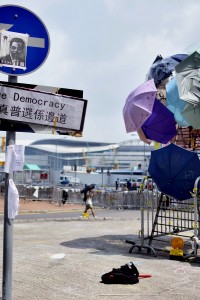“Part of the current push towards universal access to public services is the expectation that ICTs can play a key role in reaching universal access - and reaching it faster.”
16 million
people covered by South Africa’s welfare grants system
41
public services that can be accessed online in Kenya
April 2015 End date
July 2015
Issue
Communication between states and citizens is an essential element for an equal and just society. Growing social inequalities, lack of proper public services, and denial of basic human rights all act to widen existing communication gaps. Key to bridging these gaps is ensuring not only that citizen voices are heard, but also that states have the capacity and incentive to listen and respond.
Project
IDS and its partners in four African countries are carrying out a study to explore the extent to which the state listens, to whom, how, when, and why. Through a series of case studies of public service policies – health insurance in Ghana, ICTs in Kenya, welfare reform in South Africa and education in Tanzania – the study addresses the following questions:
- What are the challenges to universalising public services in sub-Saharan Africa?
- Which and whose interests and motives are behind universalisation policies?
- Who are the key actors within and outside the state – who are the champions of change, and who are the ‘saints, demons and wizards’?
- Whose voices are listened to?
- Which tools, platforms and strategies do these voices use?
Related projects
Partner
Miguel Loureiro is the Convenor for the MA Governance at the Institute of Development Studies and a researcher with the Future Agricultures Consortium. His research interests are in: policy processes and public sector reform; farming systems, village studies and agrarian reforms; and theories of social change.
IDS’s partners in this research are Terence Darko (Capacity Development Consult, Ghana), Nyambura Salome (Kenyatta University, Kenya), Aalia Cassim (National Treasury, South Africa) and Lucas Katera (REPOA, Tanzania).
Learning
In a series of four blogs during 2015, project researchers reflected on how we tell if the state is listening, lessons from the development of South Africa's welfare policy, whether e-government platforms in Kenya actually mean more responsive government – and what it’s like to try and use them.
In June 2016, the project launched four research briefings that tell the stories of policy processes around health insurance in Ghana, ICTs in Kenya, welfare in South Africa and education in Tanzania.
In each case, the researchers show how state actors became more and less responsive over time under the influence of electoral politics and the broader climate of democratisation.
Across all four studies, the team identified three ways in which the state listened:
- ‘Hearing’ moments happen when the state engages with citizen voices, but does not change the way it acts.
- ‘Consultation’ moments happen when the state engages with citizen voices, and changes its behaviour unilaterally in response to what it has heard
- ‘Concertation’ moments happen when reform-minded state officials and organised citizen voices engage in two-way dialogue and take action for accountable governance.
As well as illustrating how these different moments come about in different political contexts, they also discuss the challenges of sustaining the gains made from moments of consultation and concertation.
Publications
-
 View publication
View publication
When does the state listen?
-
 View publication
View publication
Has Kenya’s ICT revolution triggered more citizen…
-
 View publication
View publication
What happens when policy champions move on?…
Related Blogs
-
BLOG | August 2, 2016
| Terence Darko
How, when and why do governments respond to citizens? -
BLOG | December 4, 2015
| Aalia Cassim
South Africa’s social welfare system: what happens to policy when… -
BLOG | October 15, 2015
| Nyambura Salome
The 7-hour itch: Diary of a Kenyan eCitizen -
BLOG | September 23, 2015
| Nyambura Salome
e-Government Platforms in Kenya - Evidence of Change, or 'Politics… -
BLOG | September 10, 2015
| Miguel Loureiro
When does the state listen?